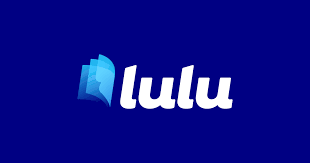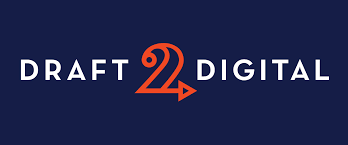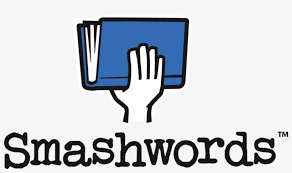
Currently, you can go to a self-publishing platform as a writer and start raking it in. Self-published books account for 30% to 40% of e-book sales. E-books themselves accounted for nearly 40% of his total books sold and will surpass paper books in the US in 2018. All of this bodes well for self-published authors who choose e-books. Healthy sales growth will be seen as more people embrace e-reading, and the self-publisher will also benefit from customers migrating from brick-and-mortar bookstores to online bookstores, such as Amazon. This puts self-publishers on par with traditional publishers.
If you’re still wondering whether to self-publish or go traditional, you should read here for a better understanding of self-publishing. If you decide to self-publish, we’ve compiled a list of popular publishing service providers for independent authors. The basic services these companies offer are converting manuscripts into a publishable format and accessing one or more retail platforms. Some companies offer different authoring solutions. Professional book editing and cover design, distribution expansion, and marketing and advertising support
The list of self-publishing platform below is in no particular order. You can choose to publish using one or more of them.
1. Amazon Kindle Direct Publishing (KDP)

Owned by Amazon, KDP publishes and distributes e-books that can be read on Kindle devices or devices with the Kindle app installed. This is one publisher that independent writers cannot ignore.
About 80% of all English e-book sales are through Amazon, with self-published titles alone accounting for 42%.
If you want to allow Amazon’s self-publishing platform exclusive distribution of your eBook for 90 days, you can sign up for KDP Select. This is a marketing program that helps authors promote their books through discounts and counts down the offers. If KDP Select works well (discounts are an effective way to increase sales, as the success of book promotion services like Bookbub shows), you can re-enroll in the program as often as you like. When you join KDP Select, your books are also available to Kindle Unlimited and Kindle Owners Lending Library subscribers (Amazon Prime members), and you get paid extra for the pages they read. Kindle eBooks use the MOBI format, unlike most other publishers that use EPUB.
If you created your eBook in Word, you can convert it to MOBI using free conversion software such as Caliber. KDP pays authors royalties of 35% or 70% of the book’s list price.
2. Apple books for authors

Self-publishing on Apple Books is another very popular and much-discussed self-publishing platform among independent authors. Why Apple Books? Our high-level answer? This self-publishing option makes your eBook available not only on Apple Books but also in the Books section of iTunes. As Apple himself said, digital book buying has skyrocketed since his 2020 announcement, and we all know Apple claims to be a big part of that market.
Apple’s iBooks is the second-largest e-book retailer after Amazon and accounts for 10% of sales in the top five countries. Over 40 country-specific e-book shops offer authors unique advantages.
You can set different prices according to the price of equivalent books in different countries or set prices in local currency. Additionally, authors can always agree to free books and discount offers, and there are no exclusive distribution agreements.
Publishing directly to iBooks requires a Mac device. Otherwise, you’ll have to go through an ebook aggregator.
Apple offers a flat royalty rate of 70%.
3. Kobo

A reputable self-publisher for all authors is Kobo, or Rakuten Kobo, as it is fully named. One of the most exciting things about this company is that you can self-publish on Kobo in just six steps. As a bonus, it’s completely free to get started! That means you get access to one of the largest and best self-publishing companies with no upfront costs.
Kobo, an anagram of “book,” accounts for about 2% of total e-book sales across the top five English-speaking markets combined. However, it is a significant player in Canada, accounting for up to 25% of e-book sales.
Like Kindle, Kobo is a self-publishing platform that offers e-readers and apps for reading on other devices. Ebooks published on Kobo are available to readers in over 190 countries. Also, in conjunction with the Bookstores Association of America, he runs the Kobo eReading program, which allows member bookstores to provide customers with access to his more than five million titles on Kobo. Kobo also partners with e-book retailers around the world.
Royalties range from 45% to 70%, depending on the price of the eBook.
4. IngramSpark

IngramSpark is a distribution service. Like most similar services, IngramSpark is very easy to use. Create an account, upload your book details, and let IngramSpark do the rest. As an added bonus, there are additional services such as marketing support and design tools.
This is a self-publishing platform set up by Ingram, the world’s leading retailer of printed books, connecting with its 39,000 bookstores, libraries, and online retailers in over 150 countries. IngramSpark also distributes eBooks to all major online retailers, including Amazon, iBooks, Kobo, and Barnes & Noble. They publish hardcover books and also offer premium-level printing. This is useful for books with many pictures. It also provides authors with book return options. Authors who choose to do so are more likely to be served by brick-and-mortar bookstores, which are otherwise reluctant to deal with self-published titles.
IngramSpark charges 53% commission on sales to bookstores and 30% commission to online retailers after deducting book production costs. They also charge a $49 setup fee and a $12 annual fee.
5. Lulu

Lulu, also known as Lulu Publishing, Lulu Press, or Lulu.com, can really take the stress of self-publishing off your shoulders. This self-publishing platform provides print-on-demand, print and e-book distribution, resources, and more to meet all of her needs.
Lulu is one of the oldest online self-publishers and a popular seller of digital and print books. They sell their books through their bookstore and distribute them to other online stores (Amazon, Apple, Barnes & Noble, Kobo, etc.) and bookstores (Barnes & Noble, Ingram). Lulu offers both hardcover and paperback formats for its printed books. While our eBook conversion, publishing, and distribution services are free, we offer a range of support services, including editing, cover design, and book marketing. For books sold through the Marketplace, Lulu charges a 20% commission after deducting all book production costs associated with the printed copy. Sales generated through affiliate merchants additionally attract their own commissions.
6. Draft2Digital

Draft2Digital has fewer retail partners than Smashwords but sells to Amazon and covers all major e-book retailers. They have another important advantage. You can format your e-book for free. They charge him 10% of the retail price at most retailers.
Innovative Tech Solutions, Tailored for You
Our leading tech firm crafts custom software, web & mobile apps, designed with your unique needs in mind. Elevate your business with cutting-edge solutions no one else can offer.
Start NowOne of Draft2Digital’s well-known advantages is its ease of use. They can distribute your book through a vast network of retailers such as Amazon, Apple Books, and Scribd, and even create a promotional homepage for you on their website.
7. Smashwords

Smashwords describes itself as “the world’s largest provider of indie e-books” on its website, one of the most recognized self-publishing platforms. Enough said! You can use Smashwords to not only distribute your books to retailers and libraries but also publish them directly from the Smashwords Store (for free!).
Smashwords is a popular e-book aggregator that distributes e-books to almost all major retailers, including Kobo, iBookstore, and Barnes & Noble. They have extensive e-book formatting guidelines that make it easy to convert to the formats required by many of our retail partners. Smashwords, on the other hand, does not sell to Amazon and does not provide format support for e-books. If you need help formatting your e-book or want to publish on an aggregator that also distributes to Amazon, Draft2Digital may be a better place to publish. Smashwords offers a 10% discount on books sold through its own retail channel and a 15% discount on books sold through other retailers, on top of the retailer’s own commission.
Note: If you choose to publish through the Smashwords Store, you can earn up to 80% in royalties. This is a big deal, especially considering Amazon royalties are paid up to 70%.
Before you go…
Hey, thank you for reading this blog to the end. I hope it was helpful. Let me tell you a little bit about Nicholas Idoko Technologies. We help businesses and companies build an online presence by developing web, mobile, desktop, and blockchain applications.
As a company, we work with your budget in developing your ideas and projects beautifully and elegantly as well as participate in the growth of your business. We do a lot of freelance work in various sectors such as blockchain, booking, e-commerce, education, online games, voting, and payments. Our ability to provide the needed resources to help clients develop their software packages for their targeted audience on schedule is unmatched.
Be sure to contact us if you need our services! We are readily available.











